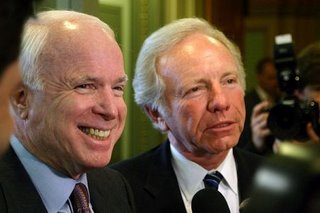In America they only arrest the 'Satanic' Rock stars for immorality, and the evangelical Christian Right burns their records and claims they use back masking for recruitment.
This shows that the Fundamentalist Patriarchal Abrahamic religions share a common ideology when it comes to their war on Rock n Roll and Satanism.
"Iran Arrests 230 Youths Attending 'Satanic' Rock Concert," AP, August 5, 2007
- Iran arrested more than 200 music fans at an underground rock concert that one official called a "satanic" gathering and authorities accused the youths of breaking Islamic law.
- A witness said Sunday that police raided the concert as it was ending late Wednesday near the town of Karaj, some 30 miles west of the capital.
- Calls to authorities were not immediately returned on Sunday. But the public prosecutor in Karaj, Ali Farhadi, said Saturday about 230 people were arrested during the concert.
- "Most of them were wealthy young people who were not aware of the satanic nature of the concert," Farhadi told state television. "A female singer, who was performing, and some rock and rap music bands were among the detained."
- He said concert organizers had told young people to attend if they were eager to learn how "devil worshippers" perform music.
- Local media reported organizers hid cameras to tape the attendants' behavior and later blackmail them. The reports also said police confiscated large amounts of alcohol and drugs.
- Boys and girls mingled and danced together during the concert, and some of the women were not wearing the modest clothing and Islamic headscarf required by law, media reports said.
And speaking of Satanists I would be remiss not to note that the Fundamentalists are murdering (ethnic cleansing) the Yezidi in Iraq. You see once you declare someone a Satanist, it is okay to convert them by the force of the sword.
Kawwal Khoudeida Hasan, the leader of a community of about 50 Yezidi families now living in Lincoln, Nebraska, is pleading with the U.S. Congress and with the United Nations to stop the genocide of the Yezidis, a Kurdish people in Iraq with a unique history and religion.
According to Kawwal, Genocide is occurring at this moment in northern Iraq to the Yezidis, a Kurdish people with a unique history and religion. Their persecution is coming at the hands of Islamic militants, who for centuries have slaughtered all Yezidis who have refused to convert to their religion.
On April 22, 2007, the world became shockingly aware of the Yezidi plight when 23 of them were lined up and systematically gunned down by a firing squad of Moslem Kurds. A few days later, 3 more Yezidi men were gunned down by Moslem extremists in the city of Mosul, thus bringing the total of Yezidi murders to 34 during the three month period from March to May, 2007.
Most recently, on August 12, 2007, the drivers of four bomb-laden trucks detonated their loads after driving into two residential areas near the town of Qahataniya, 75 miles west of Mosul, killing at least 250 Yezidis and injuring at least 500 more. This attack occurred in an area principally occupied by Faqirs, members of the Yezidi priest class, thus indicating that the ultimate goal of the culprits was apparently to strike at the jugular of the Yezidi religion by destroying its priests.
'They won't stop until we are all wiped out.' Among the Yezidi
"The attack came as no surprise to us," Prince Tahseen Sayid Ali, the temporal leader of the Yezidis, told the Guardian in his headquarters in Sheikhan, about 40 miles north-east of Mosul. Last April, the community came under the international spotlight when a Yezidi girl married a Muslim boy and was reported to have converted to Islam. She was promptly stoned to death by a mob in her hometown of Bazan. The murder was caught on a mobile phone camera and distributed on the internet. Yezidi leaders condemned the killing, but the damage was done. In response, gunmen pulled 23 Yezidi workers off a bus near Mosul and shot them dead. Hundreds of Yezidi students at Mosul university have since either fled or moved to universities inside the Kurdish autonomous area. For the past month, said Prince Tahseen, Yezidi leaders in Sinjar had been complaining of threats by Islamists. They said the militants, holed up among local Sunni Arab settlements along the Syrian border, had effectively blockaded Yezidi towns, preventing delivery of foodstuffs and fuel.
"The Islamic terrorists had made it very clear that they wanted to see rivers of Yezidi blood," said Prince Tahseen. But no one, least of all the US army, which is nominally in control of the region, was listening. "I'm sure it will happen again unless we take steps to protect ourselves," he said. "We are a peaceful people. We don't have force of arms. The only protection is for all the Yezidis is to be part of the Kurdish self-rule zone. But whether the Arabs allow us to vote on it as the constitution says we should, is another question."
A series of 4 massive car bombs in the Kurdish area of Iraq, near the Syrian border, killed more than 250 people yesterday. The attacks were aimed at the Yezedi sect, a pre-Islamic religious community that has been persecuted for centuries. Tensions escalated earlier this year however, when a 17-year-old Yezedi girl was stoned to death for falling in love with a Muslim boy and converting to Islam.
This stoning, incidently, led to the massacre of 23 Yezedis by Muslims who believed Du'a was murdered for converting to Islam:
Abdul-Karim Khalaf, a police spokesman for Ninevah province, said the executions were in response to the killing two weeks ago of a Yazidi woman who had recently converted to Islam after she fell in love with a Muslim and ran off with him. Her relatives had disapproved of the match and dragged her back to Bashika, where she was stoned to death, he said.
A grainy video showing gruesome scenes of the woman's killing was distributed on Iraqi Web sites in recent weeks, but its authenticity could not be independently confirmed.
The town of Ain Sifni is being garrisoned by a force of approximately 1000 Peshmerga (Kurdish militia) and police. It is not clear when Kurdish forces will leave but the Yazidis are quite intimidated at this point. The Yazidis have long endured persecution and intimidation from their Arab and Kurdish Muslim neighbors as have the Christian Chaldo-Assyrians of the region. It would be great if a legitimate reporter could get in and take a look at what’s going on but based on how a journalist was treated when we were there yesterday, they may be very restricted in their movement and activities.
The Yezidi are considered a 'satanic' religion, because as a gnostic religion they believe that the god of this world is Lucifer, the Peacock Angel.Their religion is an example of the transition from Goddess worship to that of the Patriarchal Monotheistic God. The polytheism of the the Goddess and God based cultures gave way to a polytheistic pantheon ruled over by One God.

Yezidism is syncretistic: it combines elements of many faiths. Like Hindus, they believe in reincarnation. Like ancient Mithraists, they sacrifice bulls. They practise baptism, like Christians. When they pray they face the sun, like Zoroastrians. They profess to revile Islam, but there are strong links with Sufism, the mystical branch of Islam.
It's a remarkably confusing picture. And I still haven't got an answer to the main question: do they worship "Satan"?
In the centre of town I am greeted by Halil Savucu, a westernised spokesman for the Yezidi. Also with us is Uta Tolle, a German scholar of Yezidism.
In Halil's Mercedes we drive into the suburbs. On the way, the two of them give me their view of the faith. "Yezidi is oral, not literary," says Uta. "This is why it is sometimes hard to pin down precise beliefs. There are religious texts, like the Black Book, but they are not crucial. The faith is really handed down by kawwas, sort of musical preachers."
And who is Melek Taus? Halil looks slightly uncomfortable: "We believe he is a proud angel, who rebelled and was thrown into Hell by God. He stayed there 40,000 years, until his tears quenched the fires of the underworld. Now he is reconciled to God."
But is he good or evil? "He is both. Like fire. Flames can cook but they can also burn. The world is good and bad."
For a Yezidi to say they worship the Devil is understandably difficult. It is their reputation as infidels - as genuine "devil worshippers" - that has led to their fierce persecution over time, especially by Muslims. Saddam Hussein intensified this suppression.
But some Yezidi do claim that Melek Taus is "the Devil". One hereditary leader of the Yezidi, Mir Hazem, said in 2005: "I cannot say this word [Devil] out loud because it is sacred. It's the chief of angels. We believe in the chief of angels."
There are further indications that Melek Taus is "the Devil". The parallels between the story of the peacock angel's rebellion, and the story of Lucifer, cast into Hell by the Christian God, are surely too close to be coincidence. The very word "Melek" is cognate with "Moloch", the name of a Biblical demon - who demanded human sacrifice.
The avian imagery of Melek Taus also indicates a demonic aspect. The Yezidi come from Kurdistan, the ancient lands of Sumeria and Assyria. Sumerian gods were often cruel, and equipped with beaks and wings. Birdlike. Three thousand years ago the Assyrians worshipped flying demons, spirits of the desert wind. One was the scaly-winged demon featured in The Exorcist: Pazuzu.
The Yezidi reverence for birds - and snakes - might also be extremely old. Excavations at ancient Catalhoyuk, in Turkey, show that the people there revered bird-gods as long ago as 7000BC. Even older is Gobekli Tepe, a megalithic site near Sanliurfa, in Kurdish Turkey (Sanliurfa was once a stronghold of Yezidism). The extraordinary temple of Gobekli boasts carvings of winged birdmen, and images of buzzards and serpents.
The Yezidi are both an ethnic and religious minority in Iraq, Turkey, Iran,Georgia and in Armenia.
500 - 1,000 CE
Mohammed founds Islam (dies 632). Celtic Church outlawed by
Council of Whitby (664). Foundation of first Sufi secret
societies (c. 700). First written translation of Emerald Tablet
of Hermes Trismegistus. Charlemagne founds alleged first
Rosicrucian Lodge in Toulouse (898). Foundation of the Cathars,
Druzes and Yezedi (900). Heretical Catholic monks found first
Rosicrucian college (1,000).
And like all patriarchal dualist religions in the region they believe they are the chosen people. Coming from Persia they may have originated as a Zoroastrian fire religion of the Magi.
Roberts was inspired by a passage found in the Travels of Marco Polo. Upon Polo's visits to Persia (the land now officially known as Iran) he was given an unusual history of the Nativity which combined unique elements of Christianity and Zoroastrianism. The Zoroastrian religion was once the most embraced and popular monothiestic/dualist organized religion in the world prior to the advent of Christianity and Judaism during the reign of the Persian Empire. The world Zoroastrian population still exists, but the adherents to that once-most-popular faith have now dwindled to only about 100,000 people.
And unlike their Semitic neighbours they are Caucasian/Indo-Europeans which also sets them apart, and as a visible minority makes them more vulnerable to ethnic as well as relgious cleansing.

Two Kids: One Bright Future
I had been hearing about the Yezidi people who live in villages near Dohuk. Followers of an ancient religion, whose proponents claim it is the oldest in the world, there are thought to be about a half million Yezidis, living mostly in the area of Mosul, with smaller bands in forgotten villages scattered across northern Iraq, Syria, Turkey and other lands. Saddam had labeled the Yezidis “Devil Worshippers,” a claim I’d heard other Iraqis make, but no source offered substantiation. I wanted to know more.
Nearly everything I heard pronounced as fact about Yezidis was certain in only one narrow sense: before long, someone equally confident of their information would provide a different set of facts. The only way to find the truth would be to talk with Yezidis in situ, so I asked an interpreter in Dohuk to take me to a Yezidi village.
An older Yezidi man with whom I speak on occasion says there are seven angels: Izrafael, Jibrael, Michael, Nordael, Dardael, Shamnael, and Azazael. All were gathered at a heavenly meeting when God told them they should bow to none other than Him. This arrangement worked for a span of forty thousand years, until God created Adam by mixing the “elements”: earth, air, water and fire. When God told the seven angels to bow before Adam, six complied. A seventh angel, citing God’s order that the angels bow only to God, refused. Although this angel was God’s favorite, his disobedience cast him from grace.
There is some dispute among Yezidis about the identity of the seventh angel; some believe it was Jibrael, while others believe it was Izrafael. Much seems lost to time. But whatever his former name, when this seventh Angel, most beloved of God, fell from grace, he was the most powerful angel in Heaven and on Earth. He rose as the Archangel Malak Ta’us. (Although this, too, is the subject of some debate; some Yezidis call him Ta’us Malak.) His herald is the peacock, for it is “by far the most beautiful bird in the world,” and the name, Malak Ta’us, literally means “King of Peacocks.”
Most Yezidis equate Malak Ta’us with Satan, a mainstay in many religions but otherwise not mentioned in Yezidism. Some Yezidis claim that Malak Ta’us is like a god himself, at least in terms of his power-particularly over the fortunes of the descendents of Adam. In this religion, God created Adam, but no Eve, and therefore all men came from Adam alone. The Yezidis were first born among all men, and consider themselves to be “the chosen people.”
The Worst since 9/11
It has been a long time since mass murder in Mesopotamia has been news. Few still cry for Iraq. Hardly anyone has heard of Yezidis, the victims.










